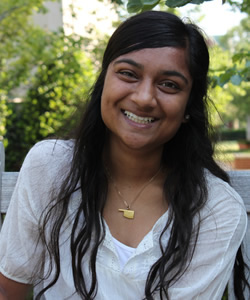Earlier this month I had the great opportunity of eating breakfast with hosting Gordon Wood and David McCullough, two of the greatest historians of our time. I listened to their conversation about how the rights to life, liberty, and the pursuit of happiness have changed and how today in America there are many who are unable to fully act on these rights as a result of economic inequality. Leaving that morning, I began to consider how wide this disparity has become, what it means for the future of our country, and how our choices as a country has limited justice for all.
The gap between the rich and the poor has been growing for almost 30 years now. Perhaps as a result of the Occupy Movement around the country, my generation is becoming concerned about this vast disparity. We read about it in the news, tweet #occupy on social medial networks, and are taking the time to discuss what this means for our futures. As future physician, I tend to view economic inequality in light of its interaction in reducing the overall health status of our society. Our choices economically have limited the benefits of healthcare – thousands go bankrupt trying to pay medical bills, so many around the country lack access to care and life saving medicines, and the cost of medicine continues to rise each and every year. Just 122 miles northeast of Norman exists an example of this correlation between economic inequality and health care outcomes. In Tulsa, Oklahoma a careful analysis of area zip codes found that midtown and south Tulsa neighborhoods (generally wealthy areas) have exceedingly healthy citizens, with age-related death rates far better than the national average. By contrast, zip codes in east, west and north Tulsa (more impoverished areas) have age-related death rates far worse than the U.S. averages. The income gap has caused a 14-year difference in life expectancy. If that’s not an indication of the importance of this problem, I’m not sure what is. Inequality kills.
Caring and sharing has an important role in medicine and also the economic gap. Healthier countries have a smaller income gap and create societies where economic justice prevails and everyone has the ability to lead healthy lives. If we are to be healthier, we must revisit policies and work in a bipartisan manner to improve health through economic means. Rather than utilize a “you’re on your own” mentality, we must work together to take from the rich and give to the poor to solve this immense problem in America. The best prescription for health in our country is a fair and equitable society and a bridging of the income gap.

